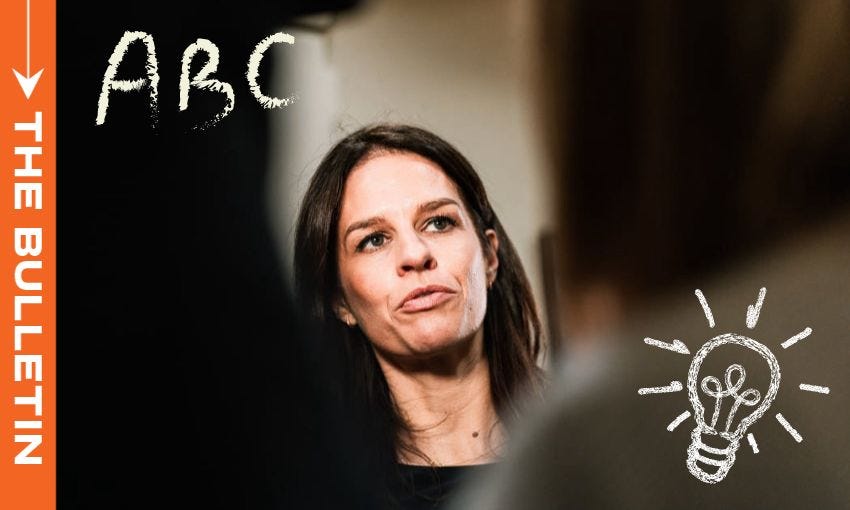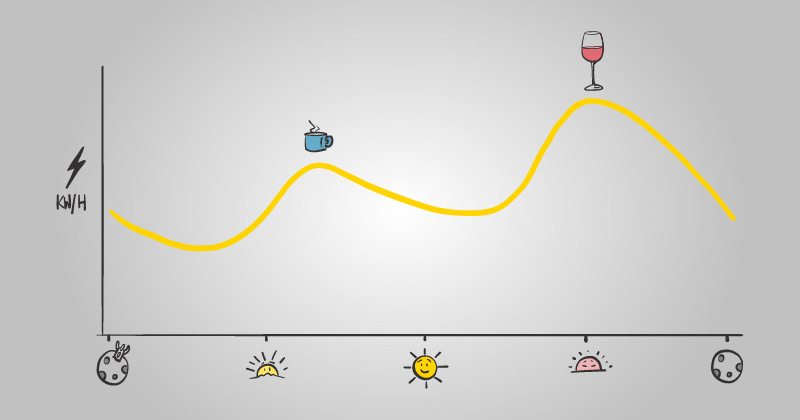NCEA pass rates fall as education sector preps for a testing 2024
Some say the government's plans for education will bring change of the same magnitude as the reforms of the 2000s
Mōrena, and welcome to The Bulletin for Thursday, January 18, written by Anna Rawhiti-Connell.
In today’s edition: Golriz Ghahraman charged with shoplifting; EV owners could end up paying more than drivers of petrol cars; Act lodges bill to put an end to Easter trading restrictions, but first, new government directives on teaching will roll out in less than two weeks
NCEA pass rates down for third year in a row
NCEA results landed yesterday. RNZ’s John Gerritsen reports that for the third year in a row, provisional results indicate pass rates have dropped across the board. The Qualifications Authority (NZQA) deputy chief executive for assessment Jann Marshall, said the drop in attainment rates on 2022 results “are likely to reflect the compounding impact of three years of disruption from Covid-19.” Kate Gainsford, chairperson of the Post Primary Teachers Association's Principals' Council, told RNZ, “nobody should be surprised it would take more time to recover from the effects of Covid on young people's education.”
The government’s plans for ‘sweeping reform’
“NCEA results landed” makes it sound like they thudded into letterboxes. Results are posted online. In the 20-mumble years since I stopped checking the letterbox at this time of year, technology has driven rapid change for everyone, including those who teach and those who learn within our education system. In a long read for The Listener (paywalled, published online on Monday) examining the current challenges within the sector and the new government’s proposed and “sweeping” reforms for it, Danyl McLauchlan asks, “How do you take in tens of thousands of 5-year-olds who can’t read and transform them into young adults who can flourish in a complex technological society?”
Compulsory hour of reading, writing and maths starts in term one
McLauchlan traverses plenty of territory, cycling through the history of education reform since Tomorrow’s Schools in 1989. He talks about declining attendance rates and assessment scores (PISA and beyond), staff shortages and the challenges facing teachers and students alike. He also speaks to Education Hub founder Nina Hood. Hood doesn’t wholly disagree with the sentiment “across much of the education sector that the system itself is fine” and that it’s “our society, with its poverty, abuse and inequality, that is failing the students, not the schools.” However, she says some of the decline in student performance “can be attributed to the change in the school curriculum and the philosophy of teaching it embodies.” New education minister Erica Stanford wants fast change, outlining plans for the sector before Christmas. McLauchlan writes that “if Stanford can advance her agenda – and parts of the sector will oppose her every millimetre of the way – it will be even more significant than the reforms of the early 2000s.” Stuff’s Gabrielle McCulloch outlines five changes schools, teachers, and students face this year. All primary and intermediate schools will be required to teach students an hour of reading, writing and maths every day, starting in term one. The mandated phone ban arrives in term two, although schools are expected to do it themselves from term one. The Guardian has a good feature on a school in the US that banned smartphones for a year.
Partnership schools: “quicker and bigger”
One of the Act party’s core policies for education is the reintroduction of partnership (or charter) schools. The party’s leader, David Seymour, is associate education minister (Partnership Schools). The Herald’s Audrey Young writes (paywalled) that “Seymour wants the reintroduction of partnership schools to be quicker and bigger this time around.” Young notes that the process for deciding whether a state school will convert to a partnership school is yet to be designed and anticipates opposition to the proposals to be intense when introduced in parliament. The union representing primary and early childhood staff, NZEI Te Riu Roa, describes the reintroduction of partnership schools as a “destructive, weird, radical” policy that undermines public education. Seymour says things will be different this time around, pointing to funding allocation and the way students in partnership schools are assessed. Cribbing from McLaughlan again, this year, “education could become a key political battleground.”
Save on power this holiday season with ElectricKiwi
You can cut your power bill costs and help the planet with Electric Kiwi’s time-of-use power plans. Pocket some savings by load shifting with Electric Kiwi’s time-of-use and off-peak power plans this summer.
Learn more at Electric Kiwi today (sponsored)
Golriz Ghahraman charged with shoplifting
Former Green MP Golriz Ghahraman will appear in court on two shoplifting charges next month. A police spokesman confirmed yesterday that charges had been laid against a 43-year-old woman “as part of an investigation into shoplifting reports that are subject to ongoing public interest”. Ghahraman is expected to appear in the Auckland District Court on February 1. Questions are being asked about the Green party’s handling of the matter. Former Green MP Gareth Hughes said the saga had not been “a crisis management PR masterclass”. Another former Green MP, Catherine Delahunty, defended the party’s handling, saying, “I don't think 'the right to know' is quite so important as we think it is sometimes, whereas the right to be human, and to try give people a chance to sort stuff out, I think that should be given to all people, including MPs.”
EV owners could end up paying more than drivers of petrol cars
Following the news that EV and plug-in hybrid owners will pay road user charges (RUCs), some may pay more than petrol car owners who pay fuel tax. In response to the Herald’s Chris Keall’s story, a reader contacted him with a few calculations (paywalled). “We have both an EV and a petrol vehicle,” he wrote. “I found that our Suzuki Swift pays effectively $511 per year [in petrol tax], while the EV will cost $912 per year [based on the AA’s average driving distance]. Checking a few more fuel-efficient vehicles, I see the most fuel-efficient vehicles such as the Toyota Yaris Hybrid pay only $350 per year. It looks like many of NZ’s popular petrol vehicles pay around half that which EVs will be paying.” AA fuel pricing policy expert Terry Collins confirmed the calculations were correct. RNZ’s Eloise Gibson found similar when speaking to consultant Christina Hood of Compass Climate. “Very efficient petrol cars can have an advantage over EVs of the same size. Road user charges are set in broad weight groups, so all plug-in electric vehicles weighing under 3.5 tonnes pay the same rate per kilometre regardless of size.”
The Spinoff is powered by its supporters
In 2023, Spinoff readers funded some of our most beloved, well-read, impactful work. Help Me Hera, The Cost of Being, powerful longreads, Election 2023 coverage, laugh-out-loud satire, Auckland stories, Wellington stories, Christchurch stories and everything in between were powered by Spinoff members and donors. If you did support us, thank you from all of us at The Spinoff. If helping fund well-crafted and insightful journalism is on your list for 2024, donate today or sign up to become a Spinoff member.
Click and Collect
Act party lodges bill to put an end to Easter trading restrictions
Card data shows retail spending in December was down despite population growth and price rises
Newsroom’s Jono Milne looks at the ongoing viability of small town councils and districts as talk of merging districts like Kawerau and Whakatāne grows
China’s population decline accelerates, with a second year of record-low birthrates
Simon Bridges in hospital after e-scooter accident. Wishing him a speedy recovery and hope this “surprisingly earnest guide” to riding an e-scooter from Mad Chapman is on the reading list for new National MPs.
Semi-related: Labour leader Chris Hipkins logrolls off a sea biscuit
Feeling clever? Click here to play 1Q, Aotearoa’s newest, shortest daily quiz.
Tommy de Silva explains Te Hui aa Motu, the national unity hui taking place this weekend. Byron Clark examines how the innocuous idea of walkable cities became conspiracy fodder. Kieran Read “thinks of himself as Jack Reacher” in this instalment of The Spinoff Books Confessional. Alex Casey has a useful list of where to watch Emmy-winning shows in New Zealand. Insomniac Gabi Lardies provides some advice on how to sleep when it's hot and muggy.
Sporting snippets
Finn Allen produced New Zealand's greatest T20 International innings in Dunedin yesterday, as the Black Caps claimed the five-match series against Pakistan with two games to play.
New Zealand-born Ethan Roots named in England’s Six Nations rugby squad for the first time
Got some feedback about The Bulletin, or anything in the news? Get in touch with me at thebulletin@thespinoff.co.nz.
If you liked what you read today, share The Bulletin with friends, family and colleagues.












I hate to ask but what is The Spinoff doing about the Substack Nazi thing? I haven’t seen you address it at all.